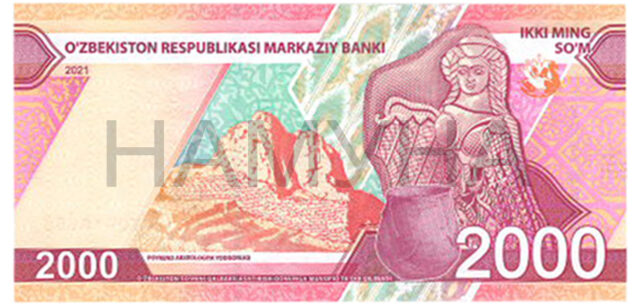
Geopolitical Report ISSN 2785-2598 Volume 34 Issue 10
Author: Giuliano Bifolchi
The recent meeting between Uzbekistan and Qatar’s representatives in Doha underscores Tashkent’s policy shift towards broadening its trade and commercial partnerships and Qatar’s strategy to enhance its economic presence in Central Asia.
Uzbek and Qatar ministers of investment’s meeting highlighted Uzbekistan’s strategy to attract a diverse array of foreign investors, catalysing the diversification of its economic landscape.
Noteworthy is the tacit recognition of Qatar’s, and by extension, the broader Gulf Cooperation Council (GCC) states’ burgeoning interests in the Central Asian region, as the first Central Asia-GCC summit accentuated last July.
This seminal convergence of interests substantiates the developing geopolitical dynamics and underscores the pivotal role Central Asia now plays in the global economic calculus, particularly for the resource-rich Gulf states seeking avenues for strategic investments and enhanced economic cooperation.
- In the attempt to diversify its economic partner, Uzbekistan has increased investment cooperation with Qatar in strategic fields (agricultural, energy, infrastructure, chemical and construction industries).
- Doha’s investment strategy in the Uzbek market underlines Qatari foreign policy in Central Asia based on financial support to local business.
- Tashkent’s necessity to diversify its economic partners and decrease its dependence on Russia and China has paved the way to the Gulf Arab monarchies’ investments.
Background Information
On September 29th, 2023, Minister of Investment, Industry and Trade of Uzbekistan Laziz Kudratov officially visited Qatar, where he negotiated with high-ranking representatives of the business community.
During a meeting with the country’s Minister of Investment and Industry, Muhammad al-Thani, as well as the heads of several significant companies, including Hassad Food, Nebras Power, FITCO Detergent, Alazizya Chemical Factory, Qatar National Cement and Power International Holding, the parties agreed on mutual business support communities of both countries.
Kudratov and al-Thani discussed current joint projects and assessed the progress of their implementation. They also discussed opportunities to expand partnerships in the areas of trade and investment. Both ministers emphasised their readiness to provide mutual support to the business community of Uzbekistan and Qatar.
The negotiations brought results as several agreements on the joint implementation of projects in the agricultural, energy, infrastructure, chemical and construction industries. In addition, Minister Kudratov presented to his interlocutors the investment opportunities and industrial potential of Uzbekistan.
Uzbekistan: An Economic Scenario
Situated in Central Asia, Uzbekistan exhibits a spectrum of strengths and weaknesses within its economic landscape. Notably, the nation boasts a wealth of natural resources, encompassing substantial reserves of gas, gold, copper, and a noteworthy hydroelectric potential.
Uzbekistan has made commendable strides in economic reforms, reinforced by robust public investment and substantial international financial backing, which serve as compelling incentives for Foreign Direct Investment (FDI).
The nation’s fiscal foundation remains robust, characterised by low public debt levels and commendable foreign exchange reserves. This stability is further bolstered by a managed floating exchange rate regime.
Uzbekistan is engaged in the negotiation process for accession into the World Trade Organization, alongside its status as an observer member of the Eurasian Economic Union (EAEU). It also maintains an Enhanced Partnership and Cooperation Agreement with the European Union, supplemented by a series of bilateral agreements.
However, Uzbekistan has a discernible dependency on Russia and China. If Beijing represents a significant investor in the local market since China’s strategy to promote the Belt and Road Initiative, sanctions against Moscow have also affected Tashkent since the current Russian economic situation will generate fewer remittances from expatriates settled there.
Furthermore, the economy grapples with reliance on commodities, and its agricultural sector is susceptible to fluctuations in weather conditions. Weak competitiveness marks the market dynamics, and the private sector’s share in the economy remains disproportionately low.
Additionally, Uzbekistan confronts formidable challenges as high unemployment rates, a relatively modest standard of living, a sizeable rural populace, and a pervasive informal economy.
Internal tensions persist between the central authority and the population in the western region of Karakalpakstan as stressed the protests occurred in July 2022 when the Uzbek president announced constitutional reforms.
Conclusion
Uzbekistan’s strategic agenda is underscored by a concerted effort to diminish its heavy reliance on Russia and China, with a simultaneous drive to court Foreign Direct Investments (FDIs) for an impetus to the domestic market.
In this endeavour, the Gulf Cooperation Council countries, particularly Qatar, emerge as a viable and appealing alternative. The inaugural Central Asia – GCC summit has paved the way for an enhanced collaboration between Qatar and Uzbekistan, setting the stage for heightened bilateral engagement.
This dynamic is likely to result in increased investments from Doha into key sectors of Tashkent’s economy, which are poised for strategic advancement. The pronounced Qatari presence in Uzbekistan unequivocally underscores the pivotal role of Gulf Arab monarchies as pivotal geopolitical actors within the sphere of Central Asia.
This collaborative overture not only reinforces Uzbekistan’s diversification strategy, but also signifies a broader geopolitical realignment within the region.
Do you like SpecialEurasia reports and analyses? Has our groundbreaking research empowered you or your team? Now is your chance to be a part of our mission! Join us in advancing independent reporting and unlocking the secrets of Eurasia’s complex geopolitical landscape. Whether through a one-time contribution or a monthly/yearly donation, your support will fuel our relentless pursuit of knowledge and understanding. Together, let’s pave the way for a brighter future. DONATE NOW and secure your place in shaping the geopolitical narrative.



